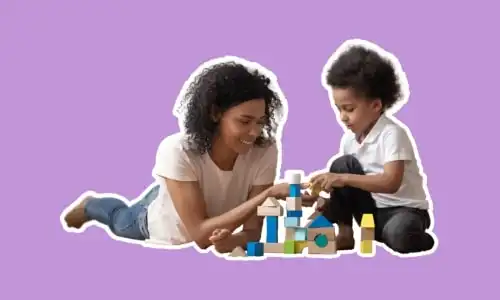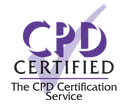
Learn the basics of
Early Childhood Development
Starting at the beginning, this course aims to equip you with the skills and knowledge you will need to address the needs of a baby and toddler. From basics such as sleep schedules and feeding, the ultimate goal of this course is to improve your ability to care for and help stimulate continuous development of a child. By the end of this course, the student will be able to understand how a child is developing, the various ways in which development can take place, as well as have practical skills that they can use to help each child on their way to reaching their full potential.
29,198
Graduates
All levels
Certified

Course details
MODULE 1
Diploma in Early Childhood Development
MODULE 1
Diploma in Early Childhood Development
1.Routine Ready
In this lesson, you will gain a profound understanding of a baby's experience outside the womb and how this can affect their behaviour. The importance of routine in settling a baby will be discussed and you will learn how to create a daily routine that will aid in having a more settled baby.
2.Comprehending Crying
In this lesson, you will learn more about why babies cry and how they use this system to warn that something is bothering them. This lesson will investigate the various reasons why babies cry and help you develop an elimination list to help narrow down and find the reason for baby's cries.
3.Successful Sleeping
Delve into the art of successful sleeping. This lesson discusses how much and how often babies should be sleeping, and looks at various ways to help babies fall asleep and sleep safely, and how to master the skill of swaddling.
4.First Feeds
Learn more about how much and how often babies should be feeding in the first few months. You will explore the requirements for introducing solids and learn more about feeding safety in this lesson.
5.Blissful Burping
This lesson explores why babies need to be burped and the many different ways that this can be done. Lesson 5 discusses various methods for burping a baby in terms of positioning, execution, as well as pros and cons to each method, so you will be able to choose the best method for you and baby.
6.Keeping Clean
In this lesson, you will learn how to interpret the contents of a nappy, how to clean a baby safely and effectively, and learn more about how appropriate nappy care can keep a baby healthy and happy.
7.Constant Cuddlers
Explore the world of the fourth trimester and how this can affect a baby's behaviour in those first few months of life. This lesson looks at ways to help both carer and baby get through the day without compromise and learn the skill of baby massage.
8.Tummy Time
Make sense of tummy time. The final lesson looks at why babies should be doing tummy time, for how long, and when to start introducing tummy time. This will discuss the various ways that tummy time can be done to accommodate a baby's needs (yes, even a baby with reflux!) and explore how to have a happy tummy time experience for you and baby.
MODULE 2
Intermediate in Early Childhood Development
MODULE 2
Intermediate in Early Childhood Development
1.Regulation Rollercoaster
In this lesson, you will explore the rollercoaster of how babies regulate themselves throughout the day and learn more about what this means in terms of their behaviour and overall happiness. You will learn how to identify warning signs of overstimulation and use the routine planning skills learned in Module 1 to help keep a baby well-regulated throughout the day.
2.Tantalising Toys
The world of toys can be daunting for a new caregiver. In this lesson, you will learn about the importance of toys, how they can be used in play, and discover what types of toys will help further the development of a baby and toddler.
3.Contrasts and Cacophonies
This lesson starts your journey into the sensory world of development. You will learn how the sense of sight and hearing can affect and contribute not only to development, but to the regulation of a child. This lesson also looks at responsible screen time and discusses practical ways in which sounds and colours can be used to improve participation.
4.Touches and Tastes
Continuing the journey through the sensory world, this lesson looks at the senses touch and taste. You will learn why babies should be playing with their food and the reasons behind it. This lesson also takes a look at finger feeding and helps you plan the ultimate finger feeding dish.
5.Gross Motor Grooves
Lesson 5 looks at gross motor development. You will learn more about what it is, how it develops, and why it is important for the later years in a child's life. This lesson aims to make gross motor play easy with key principles for enhanced development.
6.Fine Motor Fun
In this lesson, you will look at the smaller muscles and fine motor development. You will gain an understanding of how it develops and look at fundamentals for successful fine motor development. This lesson will discuss various fine motor activities and their key principles for development.
7.There's No Play Like People Play
This lesson explores the ultimate toy — YOU! In this lesson, you will learn about the importance of human interaction in terms of development and the various ways in which you can stimulate development by just making contact.
8.Scintillating the Senses
The last lesson of Module 2 takes a look at the remaining senses of the sensory world. It discusses how stimulating these senses can contribute to development, behaviour, and regulation, and uses new-found knowledge to plan a multi-sensory play activity.
MODULE 3
Advanced in Early Childhood Development
MODULE 3
Advanced in Early Childhood Development
1.The Huff About Milestones
Module 3 begins by discussing why so much emphasis is placed on milestones and when they should be reached. This lesson breaks down milestone development into its many parts and discusses how the knowledge gained in Module 2 can be used to help support milestone development.
2.Great Graspers
Lesson 2 looks at how grasp develops from birth to toddlerhood, and how it in turn stimulates other areas of development. In this lesson, you will explore activities for grasp development and principles to use in play.
3.Ready, Set, Roll
Rolling into Lesson 3, you will cover the how, why, and when of rolling. This lesson looks at why this skill is so important and how you can help a baby achieve this milestone.
4.Sitting Pretty
Lesson 4 looks at sitting and how this skill develops. You will learn all about when babies should start sitting and the various ways in which this can be achieved.
5.Crawling Cuties
Time to start moving! This lesson looks at how babies reach the crawling milestone, how you can help them, the benefits of crawling, and how to make your environment crawling-safe.
6.Standing Steady
Lesson 6 looks at standing — how a baby gets in and out of the standing position, when they should start getting into these positions, safety tips as well as top tips to help support standing development.
7.Willful Walking
In this lesson, you will look at those first steps. Learn how and when walking develops, look at safety tips for your environment, and discover top tips to help support the development of walking in a baby.
8.Driving Development
The last lesson of Module 3 looks at all the additional areas of development a baby goes through in order to be age appropriate and ready for their next set of learning goals.
MODULE 4
Proficient in Early Childhood Development
MODULE 4
Proficient in Early Childhood Development
1.Sign Right Here
Start off Module 4 with baby signing. Adding to the knowledge you obtained in Module 3, this lesson looks at how baby signing can be used to aid in communication when language is still developing and how this can reduce frustration for you and baby. By the end of this lesson, you will have learned three basic signs to use with baby.
2.Equipment for Everything
In this lesson, you will look at the various types of equipment available to make childcare easier. Discover the positive and negative characteristics of each and learn how to use them responsibly.
3.Marvelous Meal Plans
Combine your knowledge of the touch and oral-sensory senses with nutrition to make the ultimate meal plans and food experiences for babies and toddlers. In this lesson, you will learn about the importance of well-balanced meals and ways to motivate a child to try new or disliked foods.
4.Potty Party
Lesson 4 takes a look at potty training and discusses how continence develops, the ready signs for potty training, and how to make potty training fun.
5.Breaking Bad Habits
In this lesson, you will learn how bad habits and behaviours are formed, understand how they can influence a household and even future milestones, and teach you the skills you need to address these challenges successfully.
6.Motivation Magic
Lesson 6 takes a look at motivation and its role in development. Discover how you can motivate children, various reward systems you can put in place, and how to make your own motivational chart.
7.Managing Meltdowns
Meltdowns are an important part of child development. In this lesson, you learn what meltdowns are, how they differ from frustration, and techniques that you can use to help better manage meltdowns.
8.Successful Schedules
In the last lesson of this early childhood development course, you will put together everything you have learned over the course of four modules and apply your newfound knowledge to plan a daily schedule that will stimulate the senses, provide opportunity for regulation to reduce meltdowns, support the development of milestones, and set them up for daily success.
